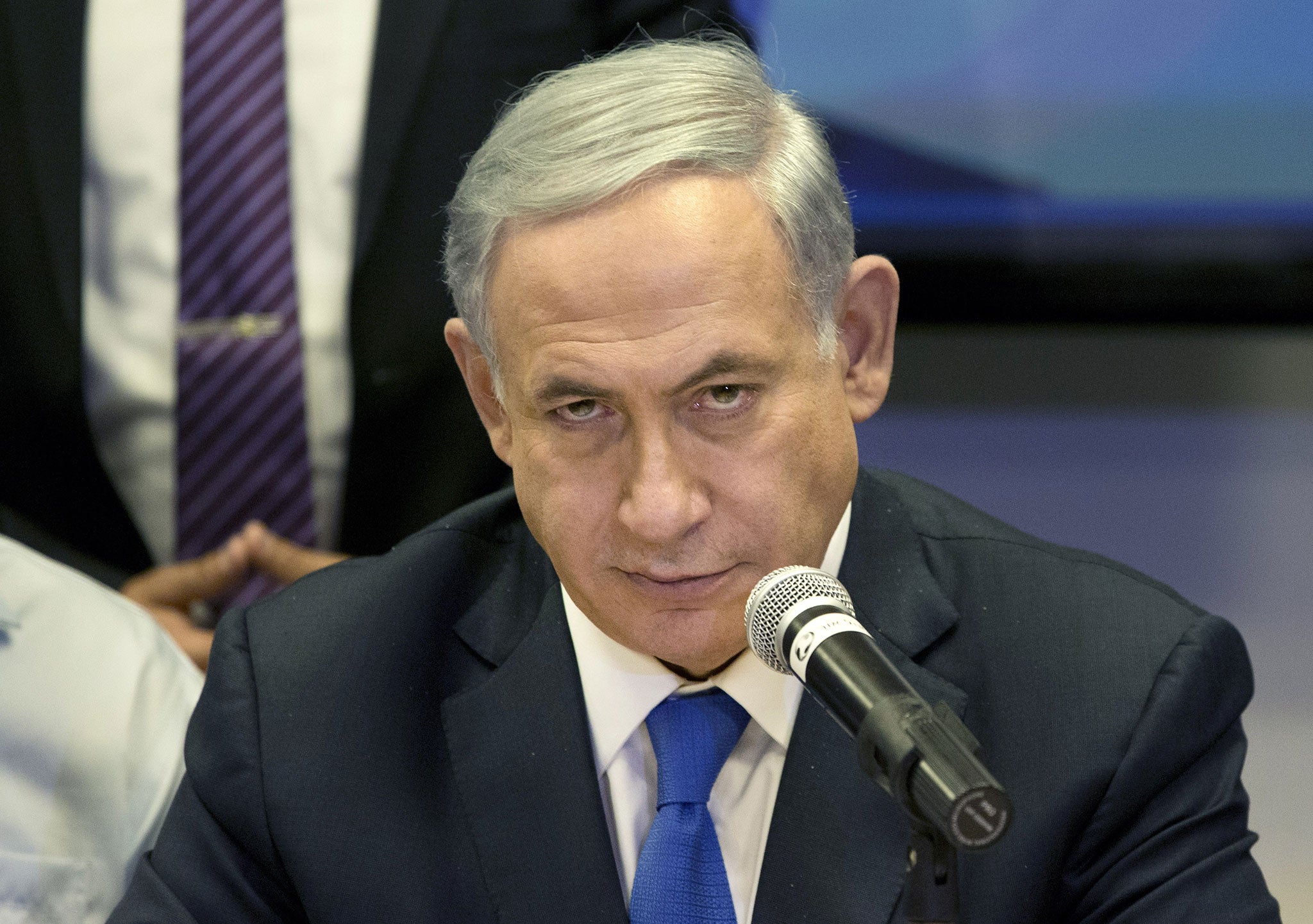Israel election: A Benjamin Netanyhahu victory might actually boost the anti-occupation movement
The Israeli PM has warned that Likud's defeat would result in land being returned to Palestine, and that it would all be part of a global conspiracy against him


Your support helps us to tell the story
From reproductive rights to climate change to Big Tech, The Independent is on the ground when the story is developing. Whether it's investigating the financials of Elon Musk's pro-Trump PAC or producing our latest documentary, 'The A Word', which shines a light on the American women fighting for reproductive rights, we know how important it is to parse out the facts from the messaging.
At such a critical moment in US history, we need reporters on the ground. Your donation allows us to keep sending journalists to speak to both sides of the story.
The Independent is trusted by Americans across the entire political spectrum. And unlike many other quality news outlets, we choose not to lock Americans out of our reporting and analysis with paywalls. We believe quality journalism should be available to everyone, paid for by those who can afford it.
Your support makes all the difference.In Israel’s far northern town of Kiryat Shmona nine years ago, after Benjamin Netanyahu had become the leader of the Likud party for the second time, I bumped into a 60-year-old Sephardic Jew called Yacov Camari. Pushing his shopping trolley through the market, he proclaimed his intention of voting Labour for the first time: “Bibi screwed us,” he announced succinctly. “And now we’re going to screw him.”
Netanyahu was indeed heavily defeated in 2006, not by Labour but by the Likud breakaway party led by Ehud Olmert – and temporarily. In 2009 he brought his right-wing Likud party back to power again, and has been there ever since. It was widely assumed that having sacked two of his coalition partners late last year and called today’s election, he would win a third successive victory. He still may, of course, but the polls suggest that he could – and perhaps finally – be “screwed”. And Labour could have its first Prime Minister since Ehud Barak won in 1999.
Every election is different. But there is a similarity with Mr Camari’s complaints back in 2006, which had nothing to do with Netanyahu’s obsession with Iran, let alone with the issue of peace with the Palestinians, but everything to do with the harm he felt Netanyahu had caused the less well-off as a neo-Thatcherite Finance Minister. This year, domestic economic issues, in particular a housing crisis, have also helped the anti-Netanyahu swing. Indeed, it’s the Palestinian dimension which has been largely missing from the election.
Until, at least, Netanyahu raised it himself in his strangely paranoid Facebook posting late last week. This was the one which, in tones some unkind Israeli commentators have compared to those of Egyptian dictator Hosni Mubarak before his fall, he accused “international organisations” of conspiring with the left to topple him – a bit rich given that the relentlessly pro-Bibi free paper Israel Hayom, which now outcirculates the rest of the Israeli press, is financed by Sheldon Adelson, the hard right-wing American casino magnate (and major bankroller first of Newt Gingrich’s and then Mitt Romney’s 2012 runs at the US Presidency.)
Netanyahu warned that if the opposition, led by Labour leader Isaac Herzog and former minister Tzipi Livni, won, they would “give up everything. They’ll withdraw to the 1967 boundaries and they will divide Jerusalem.” He didn’t of course mention that this – to him – deplorable goal is the official policy not only of what he likes to call “the international left” but of almost every Western government.
In any case this looks – sadly – like a desperate exaggeration. While Herzog would no doubt invite the Palestinian President Mahmoud Abbas to reopen negotiations, there is nothing in the campaign to suggest that he has the coherent plan needed to force an end to the 47-year-old occupation in the foreseeable future. Especially when his best hope is probably a wafer-thin majority against an opposition that could include not only Likud – possibly led by some even more overtly pro-settler leader than Netanyahu – but the Jewish Home party led by the ultra-hard-line nationalist Naftali Bennett.
For too long the Europeans, and the US Presidency, reasoned that Netanyahu would somehow deliver a Palestinian state from the right. That delusion is over, which is one reason the Europeans have begun – pitifully slowly – to consider serious measures against settlement exports. Indeed one danger is that if Herzog is elected, they will relax all this in the event of a “peace process”, however tenuous. Yesterday, desperate to solidify the right-wing vote, Netanyahu withdrew even the lip service he once paid to a Palestinian state. Nothing could better illustrate why, if and when he finally goes after dominating Israeli politics for so long, his passing will not be mourned in the West outside the ranks of the US Republican Right – or seemingly by much of mainstream Israel.
Join our commenting forum
Join thought-provoking conversations, follow other Independent readers and see their replies
Comments